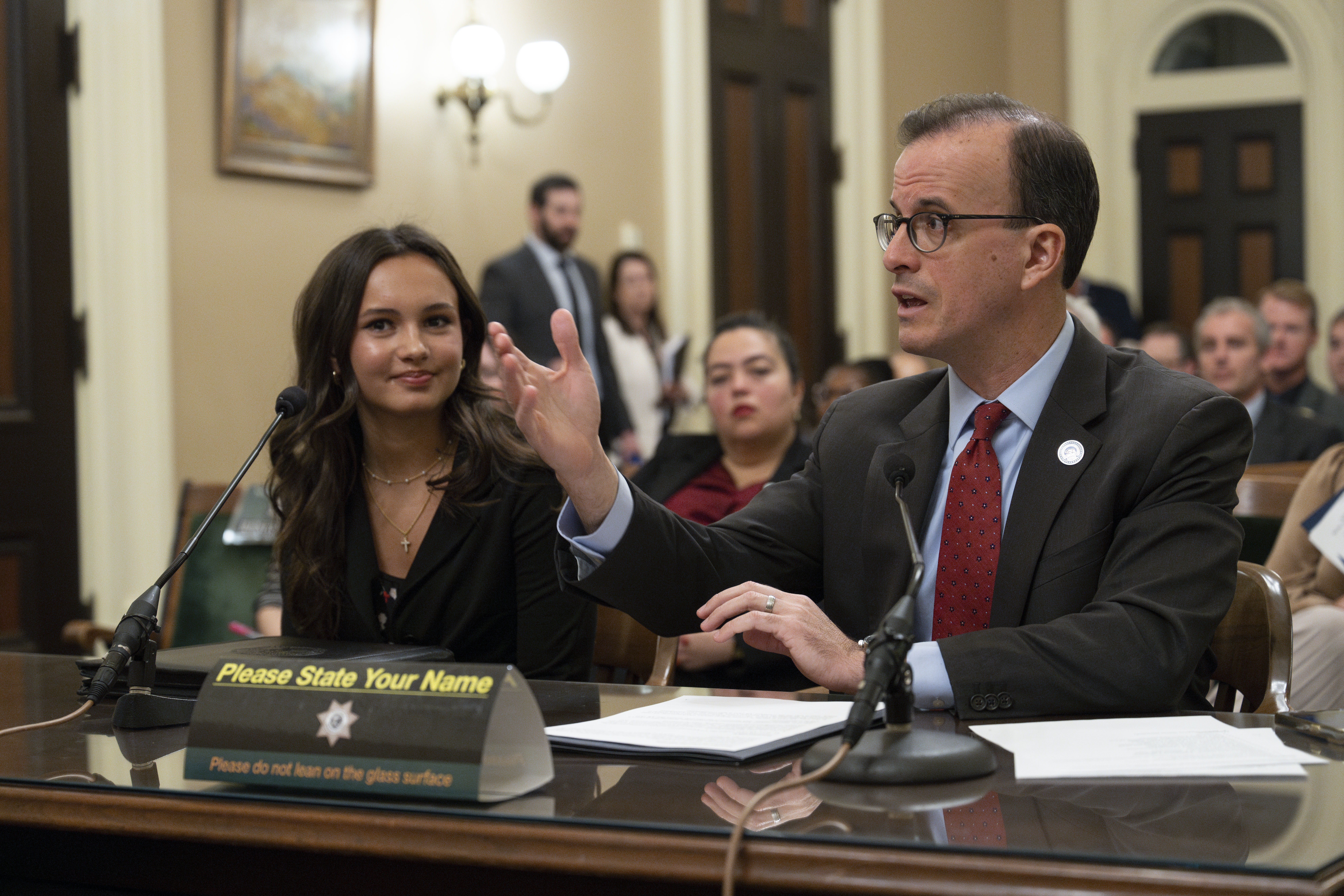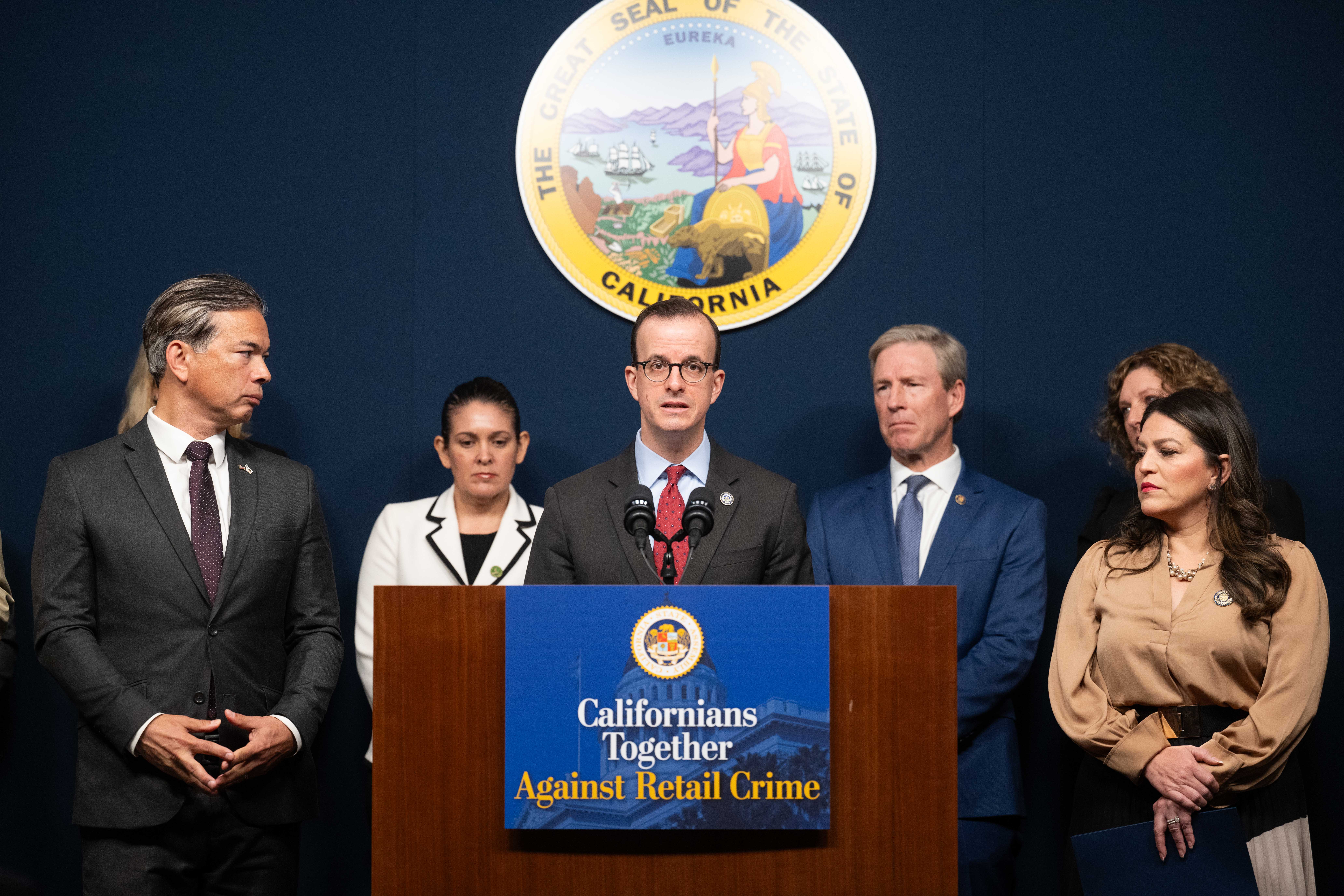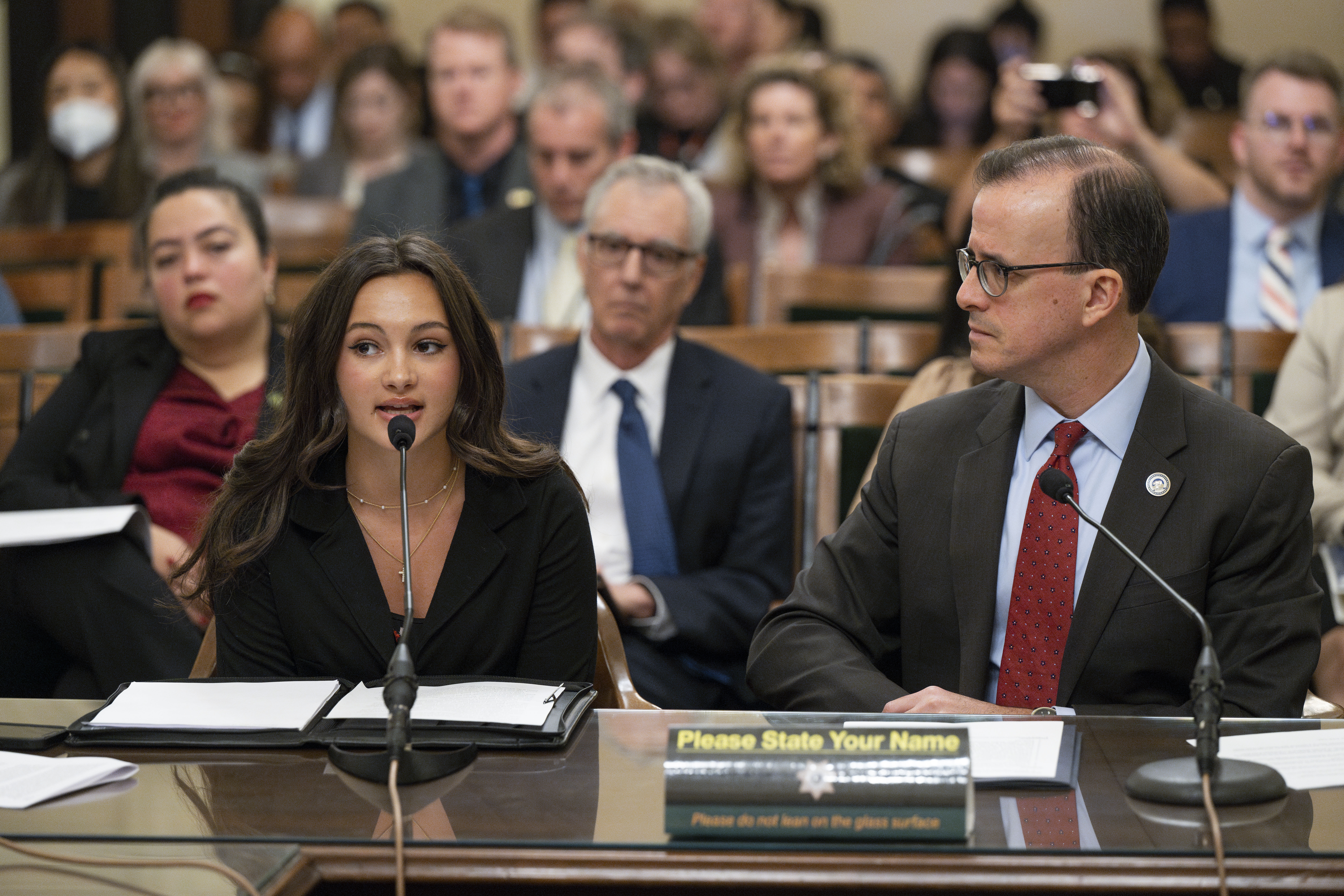
SACRAMENTO – Today Assemblymember Marc Berman (D-Menlo Park) advanced three bills focused on keeping California’s residents and businesses safe. AB 3209, AB 1831, and AB 1962 passed out of the Assembly Public Safety Committee with bipartisan support. All three bills respond to the new realities of 2024, with rising retail theft and a new frontier of crimes driven by the malicious use of advanced technology.
“Keeping Californians safe has always been a top priority of mine. The last few years have posed new safety challenges across our state, exposing loopholes and deficiencies in our laws that we must address. My district has been hit hard by increases in retail theft, with San Mateo County experiencing the highest rate of shoplifting of any county in 2022. In addition, my district is at the forefront of powerful, emergent technology which, in the wrong hands, can cause great harm to the most vulnerable among us. Whether you are posting pictures of your children on Facebook, or shopping at your favorite local businesses, Californians have a right to feel safe,” said Assemblymember Marc Berman. “I’m excited by the bipartisan support for these commonsense, smart on crime policies that will make our communities safer.”
Curbing the Tide of Retail Theft

AB 3209 will authorize a court to impose a Retail Crime Restraining Order for a theft offense, vandalism within the store, or battery on an employee within the store. The bill is a key provision in the Assembly’s bipartisan legislative package addressing retail crime and theft. While retail theft has made headlines across the state, a recent report found that San Mateo County had the highest rate of shoplifting of any county in California in 2022.
“Like all Californians, my constituents are eager for real solutions to address retail theft, vandalism and assaults on store employees. A retail crime restraining order is a commonsense solution that provides a new enforcement tool against retail crimes,” said Assemblymember Berman. “AB 3209 will keep California’s stores and workers safe from crime while providing the flexibility needed to avoid exacerbating issues of poverty. I’m proud of the bipartisan support this bill has already received, and look forward to working with colleagues to pass a comprehensive package of bills to reduce retail crime and theft in California in a smart, thoughtful way.”
“Organized retail crime and theft are harming our communities, undermining business owners and eroding people’s confidence in law and order. That ends today. The Assembly’s bipartisan legislative package strengthens public safety and protects shoppers and operators. Our comprehensive and balanced solutions uphold the successful reforms we’ve enacted to institute a more just system, and also reflect my colleagues' thoughtful dedication to exploring every aspect of the issue,” said Assembly Speaker Robert Rivas.
Protecting Children from Sexual Exploitation

AB 1831 would criminalize the creation, distribution, and possession of artificial intelligence-generated Child Sexual Abuse Material (CSAM). The bill aims to address the emerging challenges posed by artificial intelligence (AI) technologies that can produce disturbing and harmful content resembling actual children.
“California law must be crystal clear that the sexual exploitation of children is illegal, including when AI is used to create child sexual abuse material (CSAM) that is virtually indistinguishable from a real child,” said Assemblymember Berman. “I want to thank Kaylin Hayman, a survivor and victim advocate, for sharing her experience as a Disney child actor who endured AI-generated sexual exploitation. Her testimony today is a heartbreaking example of why we must pass AB 1831 to ensure our children are protected. My gratitude also goes to Ventura County District Attorney Erik Nasarenko for first raising this issue with me, and for his powerful advocacy for survivors.”
“Right now, there is a gap in California Law,” said Ventura County District Attorney Erik Nasarenko. “Changes need to be made to keep up with the quickly changing technology. This is a serious, prurient, and very disturbing problem that the law needs to address.”
AB 1831 is co-sponsored by Ventura County District Attorney Erik Nasarenko, the California District Attorneys Association, Common Sense Media, SAG-AFTRA, and University of San Diego School of Law Children’s Advocacy Institute.
Cracking Down on Revenge Porn
AB 1962 closes a loophole in current law used by perpetrators to evade punishment for distributing private sexual images of another person, either photos or video, without their consent.
“Secretly taking pornographic photos or video of someone doesn’t make you cool. It makes you a coward. And when you get caught, you’ll get convicted,” said Assemblymember Berman. “Too often perpetrators of revenge porn leverage legal loopholes to get away with this heinous crime, leaving victims traumatized, humiliated, and without justice. AB 1962 will ensure that if you record and distribute another person’s sexually explicit images without their consent there will be legal consequences.”
“Revenge porn is not sexy. It’s not acceptable. It’s not legal. It’s a felony. If you secretly record sexual images of someone else and post them online one of your hits may be law enforcement. And we will prosecute you,” said Santa Clara County District Attorney Jeff Rosen.
Existing law does not prevent someone from secretly recording an explicit video or taking an explicit picture for the purpose of revenge, which can often be the motivation behind revenge porn. It also does not cover circumstances where a person distributes stolen videos or images. AB 1962 makes it clear that these actions are illegal.
Revenge porn is an increasingly common crime intended to shame and intimidate its victims. Victims often suffer additional harm such as threats of physical violence, stalking, and criminal threats.[1] A study by the Cyber Civil Rights Initiative found that 93% of victims suffered significant emotional distress because of their victimization, 51% had suicidal thoughts, and 49% stated they had been stalked or harassed online by users who saw their explicit images.[2]
[1] Danielle Keats Citron, Hate Crimes in Cyberspace (Harvard University Press 2014)
[2] Cyber Civil Rights Initiative, End Revenge Porn Survey (2014).